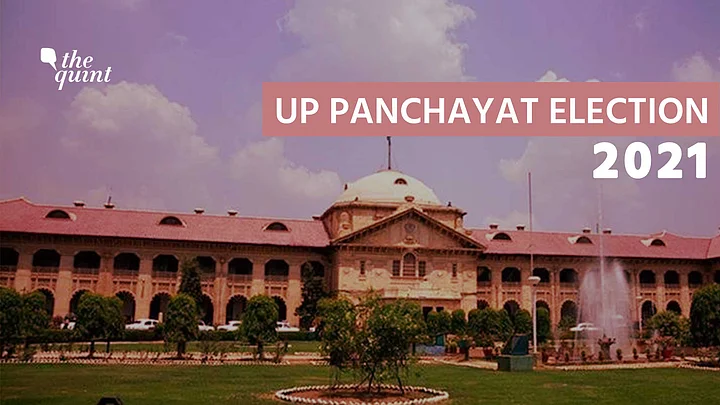For the upcoming panchayat elections in Uttar Pradesh, the Yogi Adityanath government had brought a ‘new seat reservation policy’. However, on Monday, 15 March, a two-judge bench of Allahabad High Court instructed the government to implement the reservation according to the rules of 2015.
A lot of discussion happened after the new order was issued by the UP government by assessing its pros and cons. While some experts said that it was the BJP’s strategy for the assembly elections, others said that the seats occupied by one section for years would be changed.
2015 Rules Should Be Implemented in Seat Reservation: High Court
A person named Ajay Kumar had filed a PIL claiming that the order by the Yogi government for reservation of seats was in violation of the order of September 2015.
- In a government order issued by the UP government on 11 February, 1995 was set as the base year for rotating reserved seats in the panchayat elections.
- In September 2015, the then Akhilesh government had set 2015 as the base year for the last panchayat elections.
The bench of Justices Rituraj Awasthi and Manish Thakur has asked the Yogi government to ensure that the UP panchayat election process is completed by 25 May and seat reservations are fixed as per the reservation rules of 2015.
What Is the ‘Seat Reservation Rule’ Issued by the Yogi Government?
According to the order passed by the Yogi government, the districts, regions and gram panchayats with the maximum population of scheduled castes and backward classes will be reserved in rotation in the panchayat elections.
- But the panchayats which were reserved for the Scheduled Castes (SC) in 1995, 2000, 2005, 2010 and 2015, will not be allotted to the Scheduled Castes this time and the ones, which were reserved for backward classes will not be reserved for backward classes.
- The seats reserved for Scheduled Tribes, Scheduled Castes, Backward Classes and women in five elections from 1995 to 2015 will not be reserved for that category this time.
Additional Chief Secretary Panchayati Raj Manoj Kumar had said that the most important principle of this rotation policy is that the villages, regions or district panchayats, which have not been reserved for a category yet, will be reserved for that first.
Kumar had described the priority of reservation starting with Scheduled Tribe women, then Scheduled Tribe men, followed by Scheduled Caste women, Backward Class women, Scheduled Caste men, General Category women and then General Category men.
What Was the Seat Reservation Rule of 2015?
The general reorganisation and delimitation of gram panchayats in the state took place in the year 1995 based on the 1991 census. The Akhilesh government had said that the census data was published in 2001 and 2011, after which the general reorganisation and liquidation of gram panchayats in 2014-15 was done on the basis of 2011 census. Thousands of new gram panchayats had also been formed.
While making the amendment, the government considered 2015 as the base year and the seat reservation was renewed the same year. Reservations made before that in 1995, 2000, 2005 and 2010 were zeroed. Accordingly, after 2020 (the current year), the reservation would be decided according to the 2021 census in the 2025 election and the status of reservation in 2015 and 2020 will be considered zero.
What Will Change?
After the decision of the Allahabad High Court,
- A new reservation list will now come up in the state
- Panchayat elections will be held slightly late. The court has now asked the Yogi government to complete the election process by 25 May. Earlier, the HC had said that according to the Constitution, the panchayat elections should have been held on or before 13 January 2021.
- The candidates who were preparing to contest elections according to the reservation policy of the Yogi government, will be disappointed and the money spent will be lost.
Many Complaints Also Surfaced
The petitioners also argued that according to the rules of the current government, apart from the seats that have been reserved from 1995 to 2015, the seats which were not supposed to be reserved, are also being reserved.
In such a situation, seats are being reserved for Scheduled Castes in areas where there is no scheduled caste population. Quint Hindi has come across many such incidents of panchayat seats in Bijnor district. For example, Bijnor has an ‘Amipursudha’ village with 2,400 voters. Shaukat Ali, the Representative of Head of village, says that there was not a single SC house in the village nor there were voters.
(At The Quint, we question everything. Play an active role in shaping our journalism by becoming a member today.)
